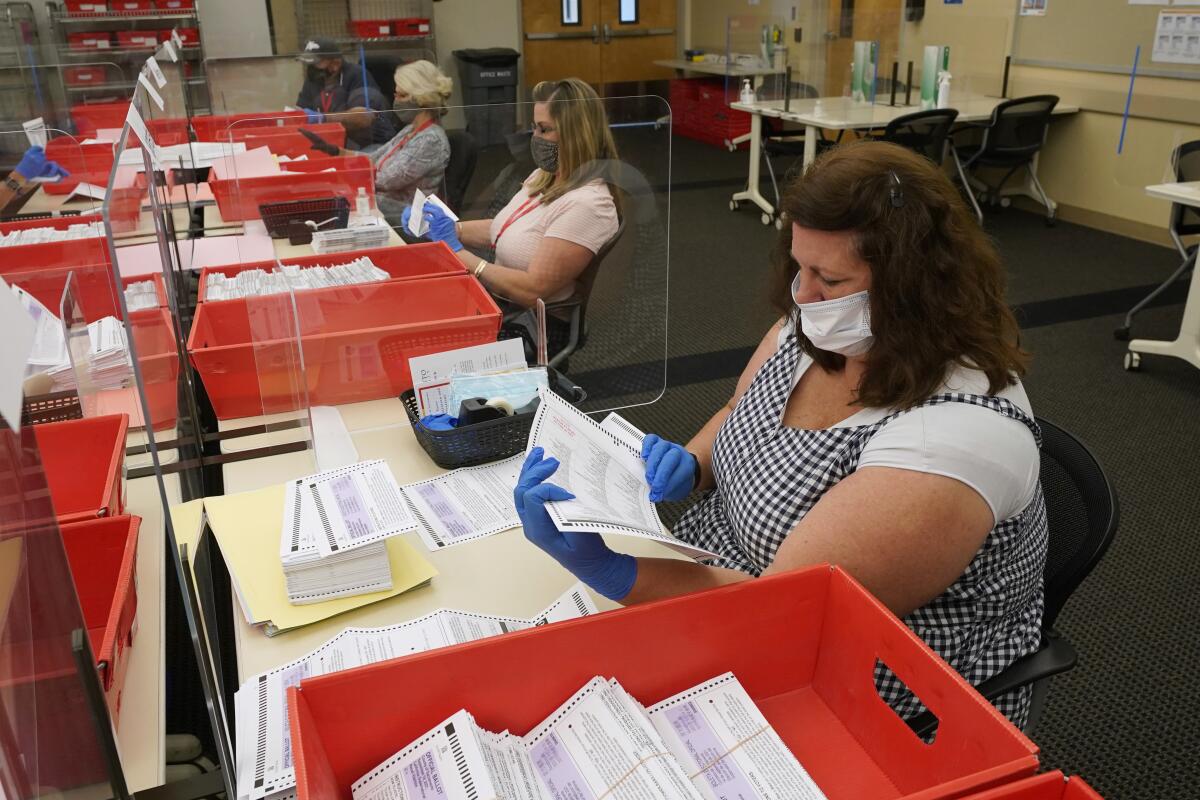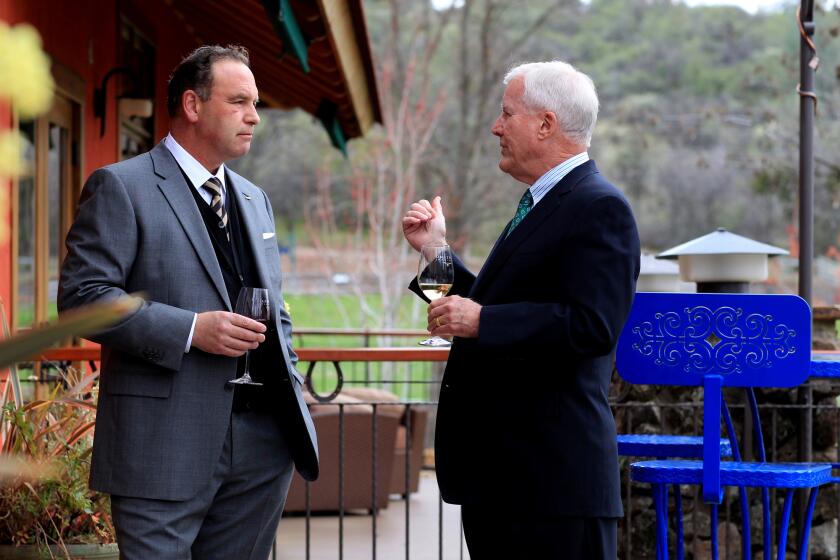California considers letting election workers hide addresses

SACRAMENTO — Elections in the U.S. have become so polarizing that California is considering treating poll workers with the same caution as domestic violence victims by letting them keep their addresses hidden from public records.
The California Legislature on Monday advanced a bill that would add some election workers to the state’s Safe at Home program, which allows some people to keep their physical addresses secret. The program was originally designed to protect domestic violence victims, but has since been expanded to include people who work at abortion clinics and their patients.
It’s one of a number of proposals in states across the country this year aimed at protecting election workers in the aftermath of the 2020 U.S. presidential election. Former President Trump has falsely claimed he was the real winner of the election, with his comments urging some of his supporters to storm the U.S. Capitol in an attempt to prevent Joe Biden from taking office.
Since then, a survey of nearly 600 election officials from across the country by the Brennan Center found 1 in 6 have experienced threats because of their job while more than half said they are concerned about the safety of their colleagues.
“I’ve worked in election security issues for over 20 years. It wasn’t until the 2020 election when I realized that protecting the physical security of the people who administer our elections is part of election security,” said Kim Alexander, president and founder of the California Voter Foundation, a nonpartisan nonprofit that works to improve the election process.
A new poll finds a growing sense of menace as Trump and followers press the “big lie” of a stolen 2020 election.
Voter registration files include people’s addresses, which usually makes them public records. In California, state officials will release that information to only four groups of people: political parties and campaigns, academics, election officials and journalists. But once those groups have the information, there is no limit on whom they can share it with.
The bill, which cleared a legislative committee in the Assembly on Monday, would let some election workers and their immediate family members apply to the secretary of state to use a substitute address in the voter file instead of their home address. The bill would apply to election workers who either interact with the public or are observed by the public, including poll workers and ballot counters.
“An increasing number of the diligent and dedicated public servants charged with administering California’s elections have been subjected to threats, intimidation and sometimes physical violence at polling places, in their offices and even at their homes,” said state Sen. Josh Newman (D-Fullerton), who wrote the bill. “Sadly, these concerns have begun to affect the ability to effectively staff and administer elections here in California.”
In Nevada County — home to about 100,000 people in the Sierra Nevada near Lake Tahoe — Registrar Gregory J. Diaz said he first noticed a change in the aftermath of the 2020 presidential election marked by “just a whole lot of disinformation” that prompted “a lack of trust in our offices.”
Former U.S. Marine Reverge Anselmo had a beef with Shasta County land use officials. So he used his riches to remake the county board. He’s not done yet.
Things got worse last year during the statewide election that failed to remove Gov. Gavin Newsom from office in the middle of his term. Diaz said there was shouting and intimidation at county vote centers that resulted in some election workers leaving their posts in tears.
But things really boiled over in January, he said, when a group of people supporting a recall election of some local officials stopped by the county registrar’s office to check on the status of their petition. Some county employees told them the office was closed, but they entered anyway and were not wearing masks as required by the office because of the COVID-19 pandemic. In the commotion that followed, a county employee got knocked down, according to Diaz, who was on vacation at the time of the incident.
Diaz said he closed the office for 10 days and sought a temporary restraining order against one of the people involved. He has since beefed up the office’s training on de-escalation techniques and says he will hire some law enforcement officers to provide extra security closer to the election.
“I’ve never seen anything like this before,” Diaz said. “I think it’s just part of the job now.”
More to Read
Sign up for Essential California
The most important California stories and recommendations in your inbox every morning.
You may occasionally receive promotional content from the Los Angeles Times.












